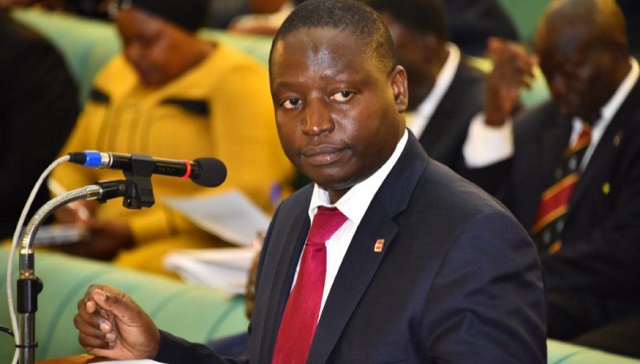
Kampala, Uganda | THE INDEPENDENT | A government move to borrow 2.4 trillion shillings from Stanbic Bank and Trade and Development Bank to plug the budget deficit, has evoked mixed feelings from economists and observers.
On Thursday, State Minister for Finance David Bahati tabled a request before parliament indicating that the government plans to borrow 2.43 trillion shillings to finance a budget deficit realized a few months into the current financial year. The money, he said, would be sourced from the two banks at 4 percent interest, repayable in seven years.
But Ramathan Ggoobi, an economist and academic at Makerere University Business School (MUBS), told URN that this borrowing will likely lead to more taxes in the next financial year, as the government seeks to raise funds to start repayments.
Also, he said, getting some of the money from the commercial bank means that the bank will be more willing to lend to the government than any other business because of the risk profile being low. Businesses, on the other hand, will find it hard to get money to invest.
Paul Lakuma, a researcher at the Economic Policy Research Centre said the big question should be where the government is taking that money adding that it will be bad for the economy if it is going to use the money for unproductive activities like increasing salaries.
He, however, said borrowing at 4 percent from these institutions would be a fair deal. Alternatively, the government would have borrowed via treasury bills and bonds but their rates are much higher between 8 and to 13 percent.
Government has been forced to borrow after the measures it had hoped to generate tax revenues did not kick off on time. The government had hoped to secure money from digital stamps and the MTN license fees but the company is taking longer to complete negotiations on how much it should pay.
Another area was capital gains tax from oil companies’ deal where Total and China National Offshore Oil Company (CNOOC) were to buy interests of Tullow before the deal collapsed in September.
Keith Muhakanizi, the Treasury Secretary, said last month that the first four months of 2019/2020 financial year saw Uganda Revenue Authority register a shortfall of 603 billion shillings. There was no hope that this gap would be filled by the end of the financial year.
Ggoobi said that when planning for the 2019/20 budget – which is Shs 40.5 trillion Shillings, the government was over ambitious without clearly knowing where the money would come from. He said some of the budgeted money was to be spent on political projects not so much on enhancing the economy.
*****
URN
 The Independent Uganda: You get the Truth we Pay the Price
The Independent Uganda: You get the Truth we Pay the Price



